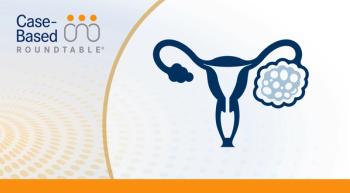
FDA Grants Priority Review to Ivosidenib Tablets for IDH1-Mutant Cholangiocarcinoma
The FDA accepted a supplemental new drug application for ivosidenib tablets and granted it priority review for the treatment of patients with previously treated IDH1-mutated cholangiocarcinoma.
The FDA accepted a supplemental new drug application (sNDA) for ivosidenib tablets and granted it priority review for the treatment of patients with previously treated IDH1-mutated cholangiocarcinoma, according to a press release from the developer, Servier Pharmaceuticals.1
The sNDA was submitted on the basis of
"Currently, there are no approved systemic therapies for IDH1-mutated cholangiocarcinoma and limited chemotherapy options are available for patients with advanced disease," said Susan Pandya, MD, vice president, clinical development, head of cancer metabolism global development, Servier Pharmaceuticals, in the release. "The FDA's priority review is a major milestone for patients. I'd like to acknowledge and thank all the patients, their families, and the investigators and research teams who took part in the ClarIDHy study."
ClarIDHy is an ongoing randomized, double-blind, placebo-controlled study (NCT02989857) that enrolled 187 previously-treated patients with IDH1-mutant cholangiocarcinoma. Those enrolled were randomized 2:1 to receive oral ivosidenib at 500 mg daily (n = 126) or placebo (n = 61). Patients were eligible to enroll if they were 18 years or older with IDH1-mutant cholangiocarcinoma and had received 1 to 2 prior therapies, including 1 gemcitabine- or 5-fluorouracil–containing regimen.2,3
In addition to exploring PFS, the key secondary end points of the study were overall survival (OS), objective response rate, PFS, safety/tolerability, pharmacokinetics, pharmacodynamics, and health-related quality of life.
Results from
The study allowed for crossover from the placebo arm to the ivosidenib arm upon radiographic disease progression. According to the prespecified analysis to adjust for crossover to ivosidenib, the median OS for patients in the placebo arm was 5.1 months (HR, 0.49; 95% CI 0.34-0.70; 1-sided P <.0001).
Safety data for the trial were previously published in Lancet Oncology. The most common treatment-emergent adverse effects (TEAEs) observed with ivosidenib or placebo were, nausea (38.0% vs 28.8%, respectively), diarrhea (33.1% vs 16.9%), fatigue (28.9% vs 16.9%), abdominal pain (22.3% vs 15.3%), cough (21.7% vs 8.5%), decreased appetite (21.7% vs 18.6%), ascites (19.9% vs 15.3%), vomiting (19.9% vs 18.6%), and anemia (18.1% vs 5.1%).3
Grade 3 TEAEs were also seen in 53% of patients in the study who were treated with ivosidenib. The most common grade 3 or higher TEAEs reported in the ivosidenib and placebo arms were ascites (9.0% vs 6.8%, respectively), blood bilirubin increase (5.4% vs 1.7%), and anemia (7.2% vs 0%).
The patient population of ClariDHy study weree a median age of 62 years. Intrahepatic disease was observed in 92.4% of patients, and 92.3% had metastatic disease. Most patients (46.7%) had received 2 prior therapies, and the remaining patients received 1. Confirmed IDH1 mutations by next-generation sequencing in R132C were identified in 71.05% of patients. The other patients showed IDH1 mutations in R132L/G/S/H. The ECOG performance status at baseline was 0 for 35.4% of patients and 1 for 63.3% of patients.
ClarIDHy is the first randomized phase 3 trial for previously treated IDH1-mutated cholangiocarcinoma. If ivosidenib is granted FDA approval for the treatment of IDH1-mutated cholangiocarcinoma, it will be the first FDA-approved systemic therapy in this setting.
References:
1. Servier Announces FDA filing acceptance and priority review for TIBSOVO® (ivosidenib tablets) in IDH1-mutated cholangiocarcinoma. News release. Servier Pharmaceuticals. May 5, 2021. Accessed May 5, 2021.
2. Zhu AX, Macarulla T, Javle MM, et al. Final results from ClarIDHy, a global, phase III, randomized, double-blind study of ivosidenib (IVO) versus placebo (PBO) in patients (pts) with previously treated cholangiocarcinoma (CCA) and an isocitrate dehydrogenase 1 (IDH1) mutation. J Clin Oncol. 2021;39(suppl 3):266.
3. Abou-Alfa GK, Macarulla T, Javle MM, et al. Ivosidenib in IDH1-mutant, chemotherapy-refractory cholangiocarcinoma (ClarIDHy): a multicentre, randomised, double-blind, placebo-controlled, phase 3 study. Lancet Oncol. 2020;21(6):796-807. doi:10.1016/S1470-2045(20)30157-1




















